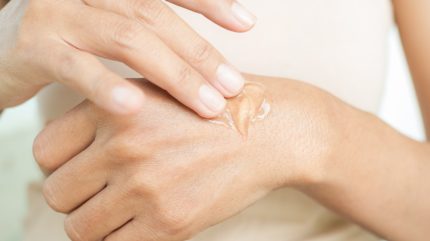
Lutris Pharma has concluded subject enrolment in its Phase II clinical trial of LUT014, a new B-Raf inhibitor designed for topical application to treat acneiform rash due to epidermal growth factor receptor (EGFR) inhibitor therapy.
The study enrolled 117 patients with metastatic colorectal cancer (mCRC), who have developed Grade 2 or non-infected Grade 3 EGFR inhibitor-induced acneiform rash.

Discover B2B Marketing That Performs
Combine business intelligence and editorial excellence to reach engaged professionals across 36 leading media platforms.
Subjects were enrolled across 20 international sites, including Memorial Sloan Kettering Cancer Center, MD Anderson Cancer Center, and the Dana Farber Cancer Institute.
The placebo-controlled, double-blind study is designed to evaluate the efficacy and safety of two concentrations of LUT014 gel, 0.03% or 0.10%, administered once a day over four weeks.
The trial will compare the two concentrations of LUT014 gel to a placebo.
During an optional open-label extension phase, subjects from the placebo group can receive a 0.03% concentration of LUT014.

US Tariffs are shifting - will you react or anticipate?
Don’t let policy changes catch you off guard. Stay proactive with real-time data and expert analysis.
By GlobalDataThe trial’s primary endpoint is to measure the proportion of subjects achieving treatment success, defined as a decrease of at least one grade in the severity of the acneiform lesions or an increase of at least five points in the skin-specific quality of life score, from baseline to day 28.
Key secondary endpoints of the trial include assessing adherence to EGFR inhibitor treatment.
Lutris plans to report the topline results from the trial in the first quarter of 2025.
Lutris Pharma chairman and founder Antoni Ribas stated: “Enrolment of the last patient is an important milestone for Lutris Pharma and in the progress of the international Phase II trial of LUT014.
“Although EGFR inhibitors are critical treatment options, approximately 75% of patients with mCRC receiving such therapy experience acneiform rash, which can be so disruptive to quality of life that many of these patients do not receive the optimal treatment against their cancer, either due to dose reduction or even discontinuation of the anti-EGFR therapy, caused by the rash.
“By reversing the inhibitory effect of anti-EGFR therapy on downstream signalling in the skin cells, we believe that LUT014 has the potential to address a toxicity of otherwise effective therapeutic regimens and can have a favourable impact for patients who currently have no other treatment options.”



